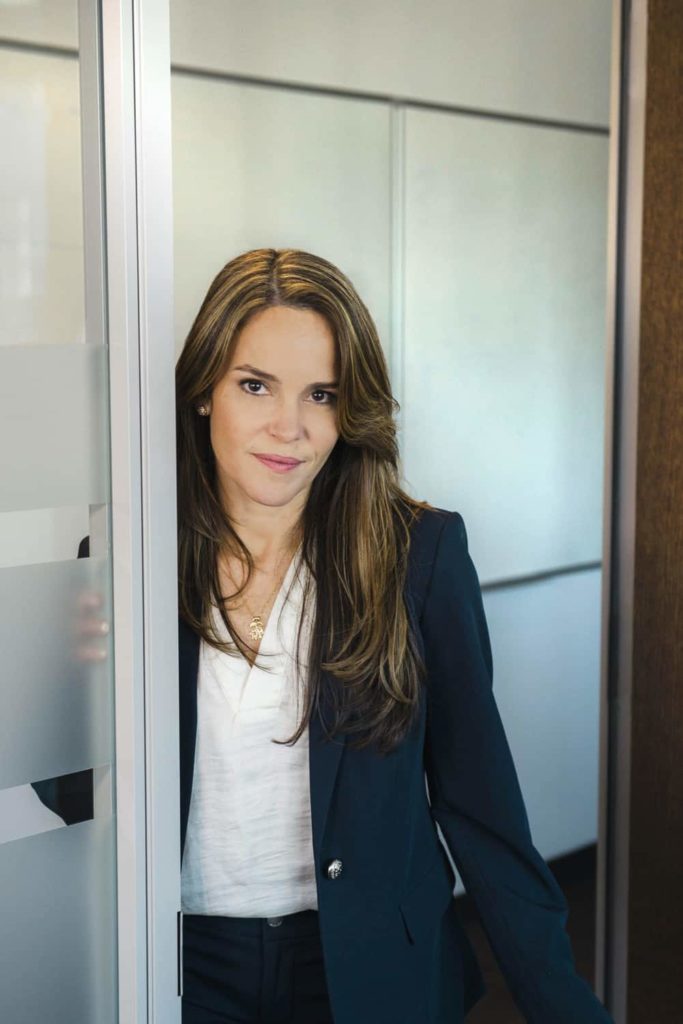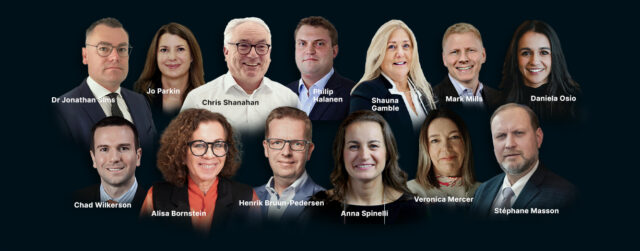What does being a leader really mean to an individual and to an organisation?
We learn from a young age about the significance of mentorship and role models, people who can guide us, teach us and inform our development both in life and in our careers.
But do we talk about them enough? When it comes to dealing with transformation, evolution and change, what then becomes of the leader, the mentor and the role model?
Rachel Lemos, Director of procurement at Canadian Western Bank, joins Dale Benton to discuss how role models, mentors and leadership has and continues to defined her own professional journey.
“Success is borne out of the people surrounding you. You cannot think of success by looking to one person, one leader – that’s a failure right there”
In times of great change, the responsibility to lead and to inspire now rests upon her shoulders. In her journey, Lemos has come up against the barriers and the challenges of being a woman in largely male dominated industry space. These are a crucial part of hers and any female procurement professional’s story.
“We’re far away from where we should be. But we see that there is a change, there’s a trend and there’s willingness for organisations to develop more and more women into leaders,” says Lemos. “My personal experience has shown that the more you progress in your career, the more challenges you face because you’re dealing with something that people are just not comfortable with. You have to be prepared to deal with the discomfort they may be experiencing with a lot of diplomacy and be prepared to start difficult conversations sometimes, and touch on the discomfort of other people when you are sitting at that leadership table.”
Enabling positive change for an organisation is the key for any leader and Lemos recognises the duality of her role; to enable positive change for a business from a procurement perspective, but also to enable positive change as a female leader and to open the doors to future female leaders. “I have a responsibility to coach, to inspire, to mentor,” she says, “I take personal time to do that. It’s not only with my team. Very often I get people asking me to help them and be their mentor. Interestingly enough, I have also received a few invites from men in procurement for mentoring too, which I’m always happy to provide.”
“It is a responsibility. You can’t just dismiss that. You’re not here just to look into your career path, but what you do in your career influences others. My advice for females is this: come with an open heart and with a winning attitude. Give your best, be humble to learn, step back when you need to and be ready to advance when the opportunity presents itself. Results are not gender based and they speak for themselves and they speak loud many times. So if you present results, if you do your best, you’re in the right place and you will succeed.”
Lemos also stops to take a moment and invest time assessing her teams in order to understand and support their career goals. Talent is crucial and when change is constant it can be easy to lose that talent as you focus too much on what can be, rather than what it is. “You should always keep an eye on and review what type of talent you have and how you are working to retain those talents,” she says. “It’s really the responsibility of the leader to assess, understand, see what the gaps are in your people. Can we build in time to develop? Do those individuals want to develop? Because you can’t just assume they are open to change.”

“Results are not gender based and they speak for themselves and they speak loud many times”
This isn’t the sole responsibility of Lemos, or other CPOs, alone. It’s a shared responsibility of all levels of the leadership team to get together and have what she describes as “mature and honest” conversations that identify what the endgame is, what’s needed to get there, and identify any gaps in our teams that need to be addressed.
“Success is borne out of the people surrounding you. You cannot think of success by looking to one person, one leader – that’s a failure right there,” she says. “It’s becoming rare to see leaders taking interest in people’s journeys and career goals. You need to be candid. You need to be honest, and you need to be having those conversations and that’s how you grow your team and achieve any form of success.”











